…or why you should learn to maintain your own clock.
So you’re looking at that clock in the antique mall window. Perhaps it’s a lovely old Sessions Black Mantel clock, with lion heads and metal arches. It runs, and it’s only $90, so you take it home.
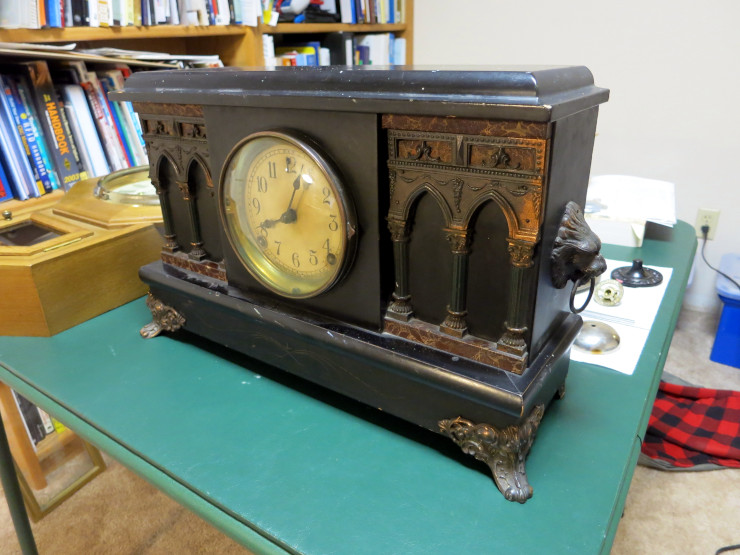
After a while it stops running, so you look up a clock repairer at your local NAWCC (National Association of Watch and Clock Collectors) site, and take the clock in for an estimate.
Then you get a shock: that $90 clock will take several hundred dollars to fully clean and oil. …but it’s such a beautiful clock, so you spend the money.
Then you get the expensive news: the clock repairer says you should bring the clock back in every two years to be oiled, and every five or so years to be fully cleaned again… another couple hundred dollars.
So this $90 clock will cost you another several hundred dollars every few years just to keep it running; thousands of dollars over the years you will own it.
The Family Cuckoo Clock
Or perhaps you have an old cuckoo clock in a moving box in a back room, that your grandparents brought back from their trip to Germany and your parents inherited. You remember the cuckoo singing when your family visited your grandparents as a child, and would love to hear it sing again.
Then you open up the clock and find the bad news: it’s a mess inside, and looks like it’s been in a paint shaker. You call your mother and hear “Yes, that clock hasn’t worked in years. I seem to remember it falling off the wall.”
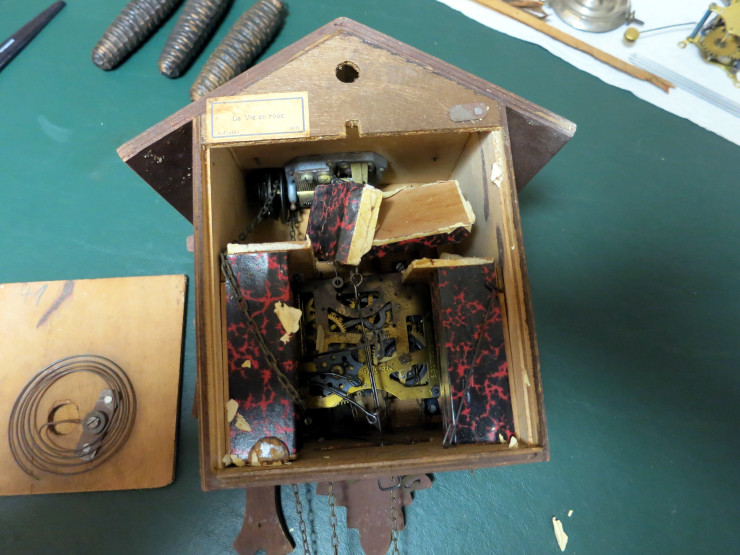
So you contact a clock repairer and find… it’s going to cost several hundred dollars to repair, and the same amount every few years to keep it running. Far more than the cost of a new cuckoo clock!
Why Owning a Clock Costs So Much
You may ask yourself: are these repairers taking me for a ride? I can understand why it costs a lot to repair a clock, but why does it cost so much, so often, just to keep it running? I’ve had friends whose clocks run for decades without being serviced. What’s going on?
The answer is that a clock is a delicate mechanical machine, which must be regularly oiled and cleaned. If someone told you their car had been running fine without an oil change for 5 years, you’d know that that car’s engine is a mess; the same is true of a clock.
Every wheel in a clock has fine steel pivots (ends of the axle) that turn in brass pivot holes. Those holes must be oiled every 2 or so years because the oil dries.
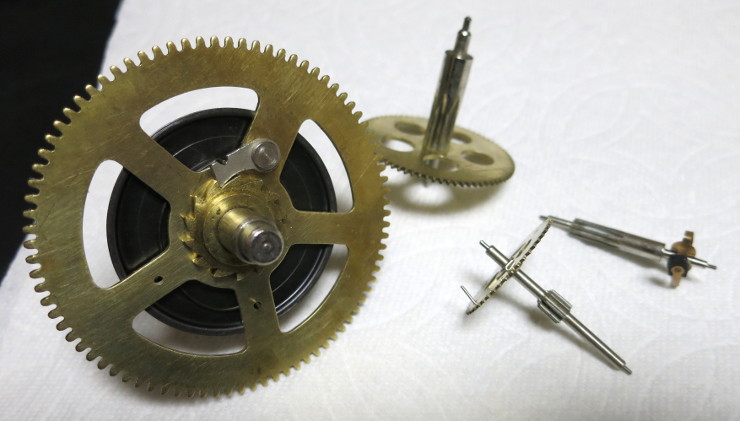
Also, every 5 years or so, the clock must be completely disassembled and cleaned because those pivot holes trap dirt.
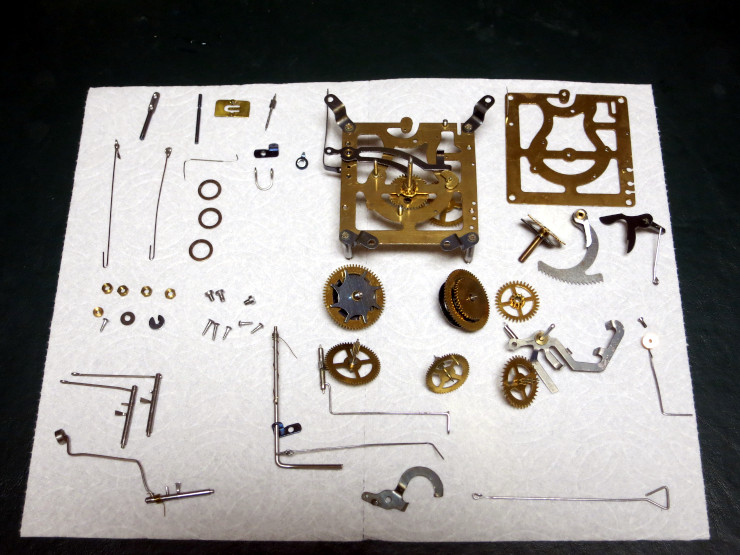
Some hobbyists claim they can clean a clock without disassembling it, but that kind of cleaning leaves dirt, dry oil, and ground metal deep in the pivot holes. Running a clock in that state just grinds the round pivot holes until they are so oval that the gears no longer mesh well, and the clock stops.
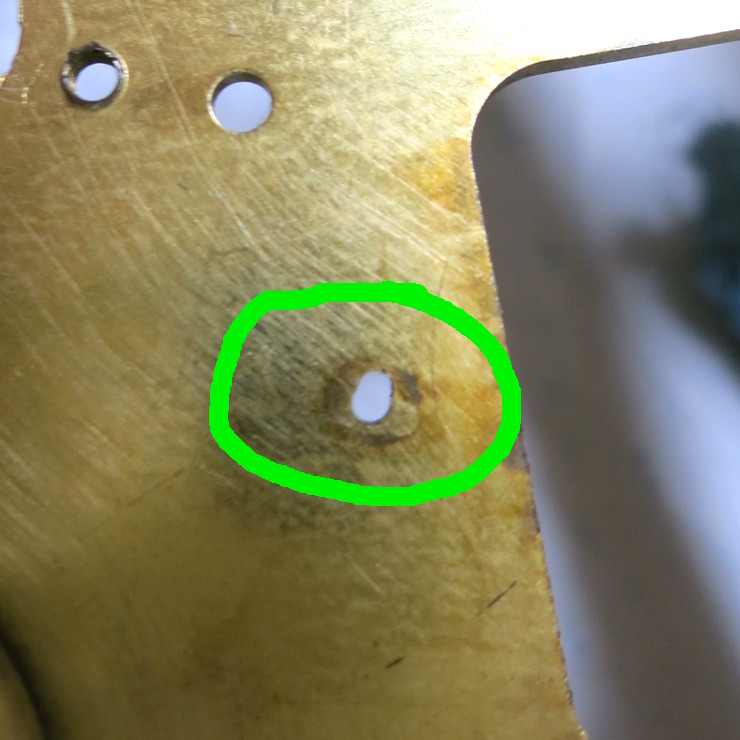
But Why Does it Cost So Much?
As captain Barbossa says, “You know the problem with being the last of anything: by and by there be none left at all.” Although Barbossa was talking about pirates, his words apply to clock repairers.
As I write this note, there are only a handful of Certified Master Clockmakers on the US west coast. I’m lucky that one lives only 100 miles away from my home. In Britain, clock makers (trained clock repairers) are listed by the Heritage Crafts Association as Endangered – that is, disappearing.
It took me a while to understand that only a Master Clock-Maker can do competent clock repair: in most cases the manufacturers of these clocks closed decades ago, and nobody makes spare parts. So to repair a clock, the repairer must be able to make their own replacement parts.
You can learn to maintain your own clock
You can save a lot of money by simply learning how to oil your clock, you can save even more by learning how to disassemble, clean, and reassemble your clock. It’s not as hard as it looks: you simply need patience, orderliness, and a few hundred dollars in tools and parts.
And who knows? You may find clock repair a fascinating hobby, and want to learn it as a profession, just to keep the craft alive.
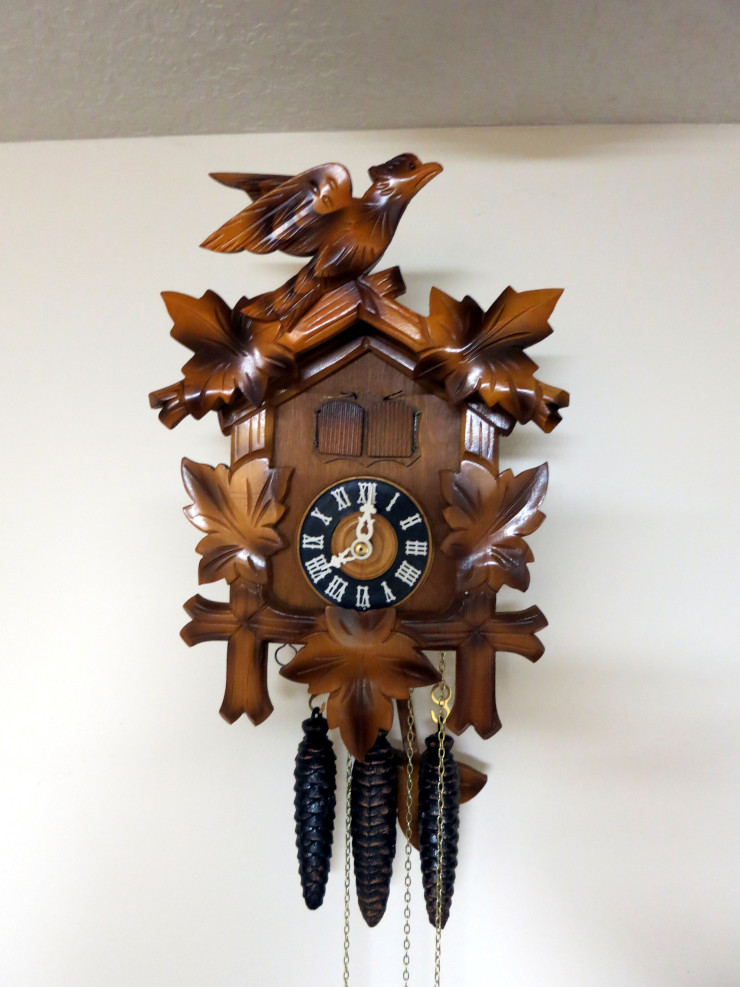
Featured Image: Petrus Christus, 1449: A Goldsmith in his Shop. Public Domain courtesy of the Metropolitain Museum of Art.

